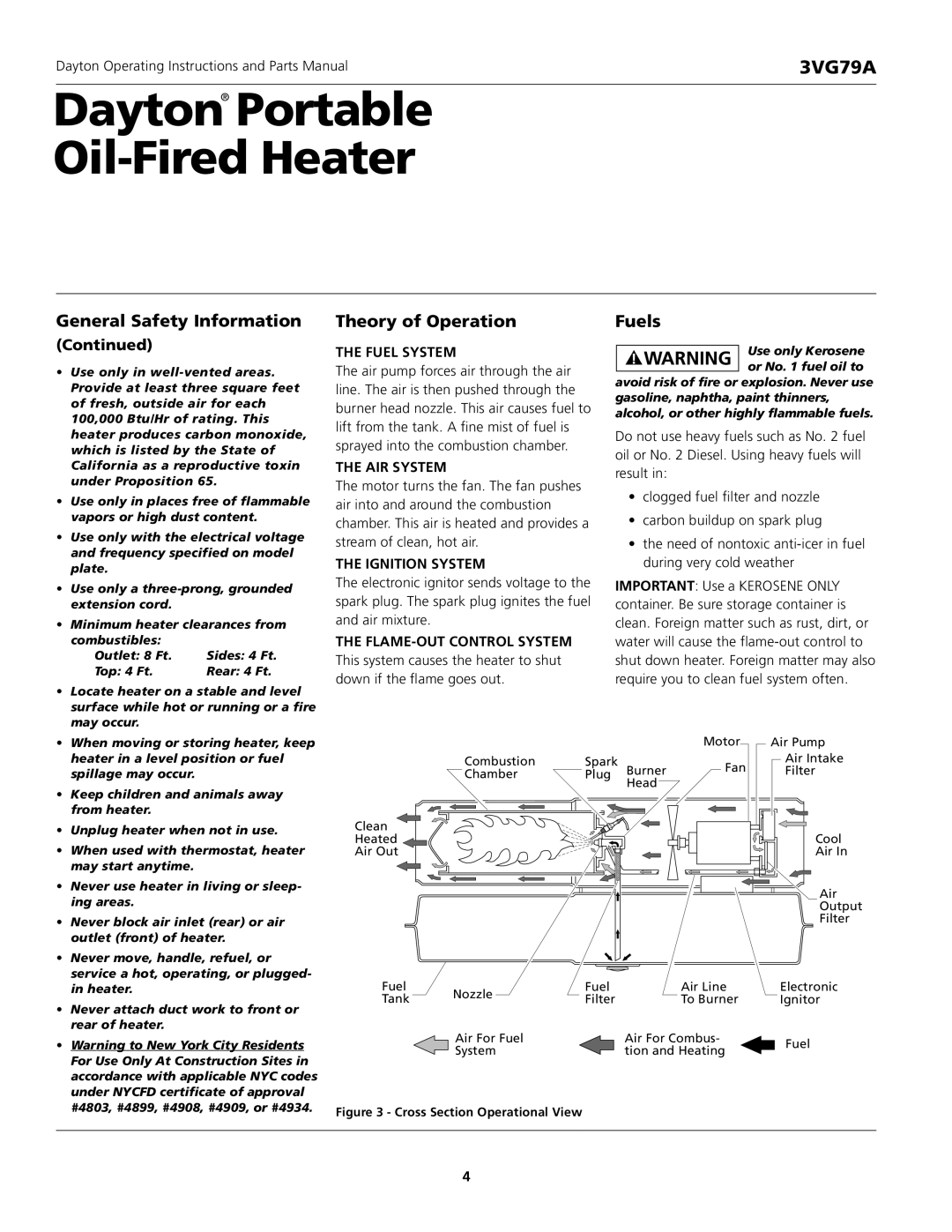3VG79A specifications
The Dayton 3VG79A is a versatile and high-performance variable speed air ventilator that is designed to enhance air quality while providing optimal energy efficiency. Known for its robust build and innovative technology, the 3VG79A is particularly suitable for a wide range of commercial and industrial applications.One of the standout features of the Dayton 3VG79A is its variable speed motor. This technology allows users to adjust airflow based on specific requirements, ensuring that energy consumption is minimized while maintaining desired ventilation levels. The ability to modify speeds not only contributes to energy savings but also enhances the overall comfort of any environment by providing just the right amount of ventilation when needed.
The Dayton 3VG79A is equipped with a durable construction that includes corrosion-resistant materials, making it suitable for use in a variety of settings where durability is crucial. Whether installed in a warehouse, factory, or commercial building, the ventilator is built to withstand challenging conditions over time.
In terms of performance, the Dayton 3VG79A delivers impressive air-moving ability, with a maximum airflow rate that meets the demands of even the most air-intensive environments. This capability ensures that spaces remain well-ventilated, preventing stale air buildup and promoting a healthier indoor atmosphere.
The 3VG79A also features an integrated control system, allowing for easy monitoring and adjustments. Users can effortlessly switch between automated settings or manual control, providing flexibility and convenience. Advanced safety mechanisms are also in place, including overcurrent protection, to ensure reliable operation.
Another key characteristic of the Dayton 3VG79A is its relatively low noise level. Despite its powerful performance, the commitment to quieter operation allows it to be used in sensitive environments, where excessive noise could be disruptive.
In summary, the Dayton 3VG79A stands out due to its variable speed motor, durable construction, high airflow performance, user-friendly control system, and low noise level. These features make it an excellent choice for businesses seeking an efficient, reliable, and versatile ventilation solution, ultimately improving air quality and energy efficiency for various applications.

